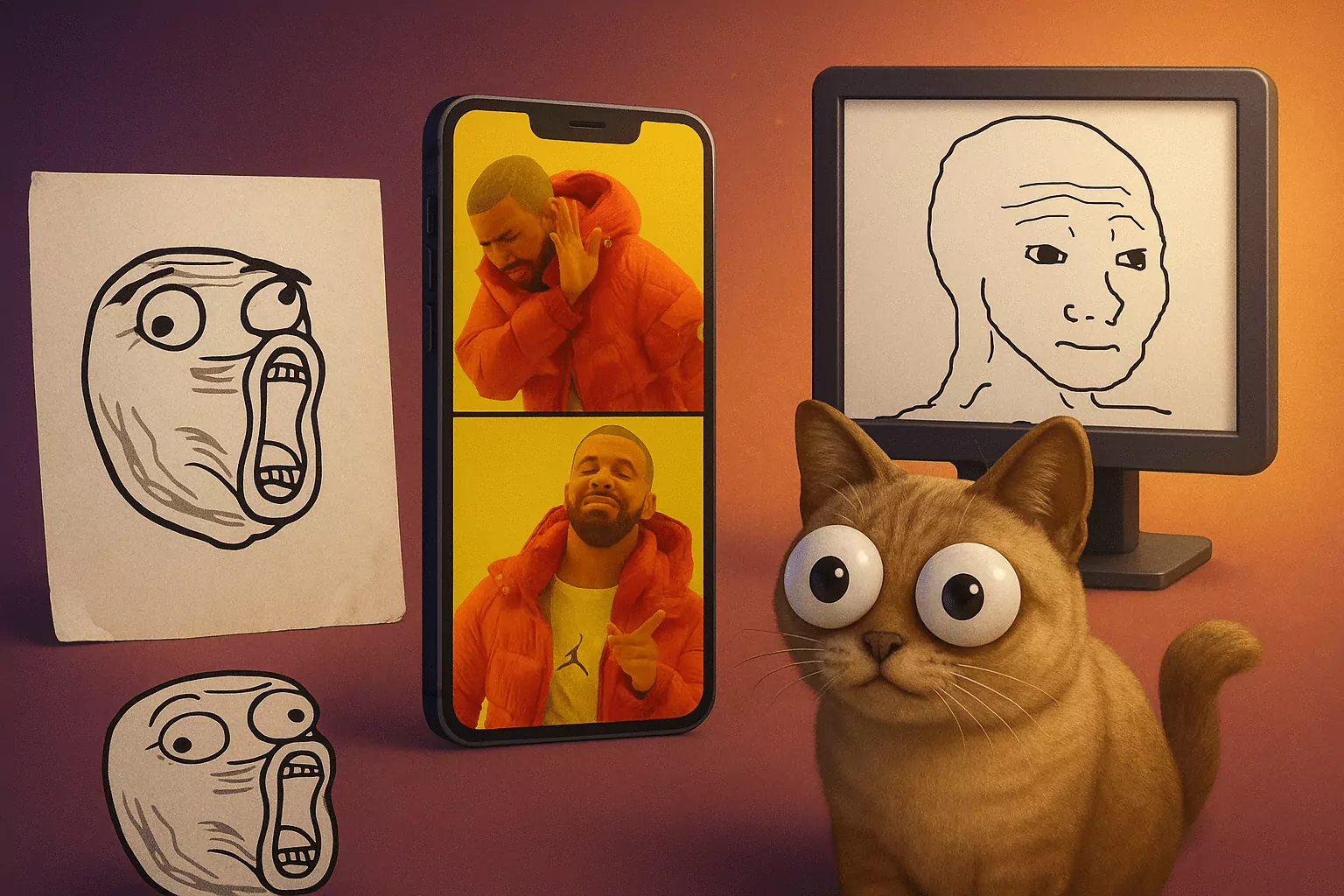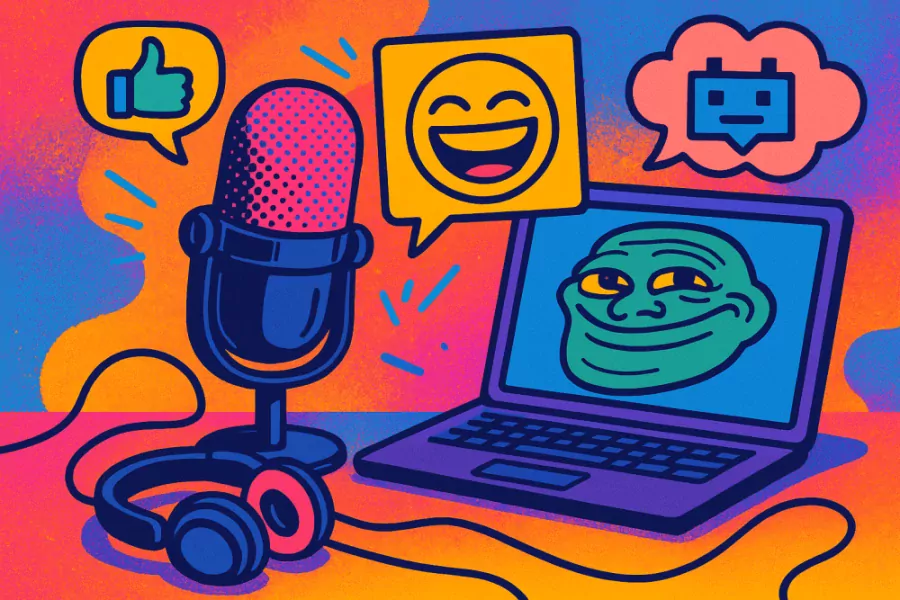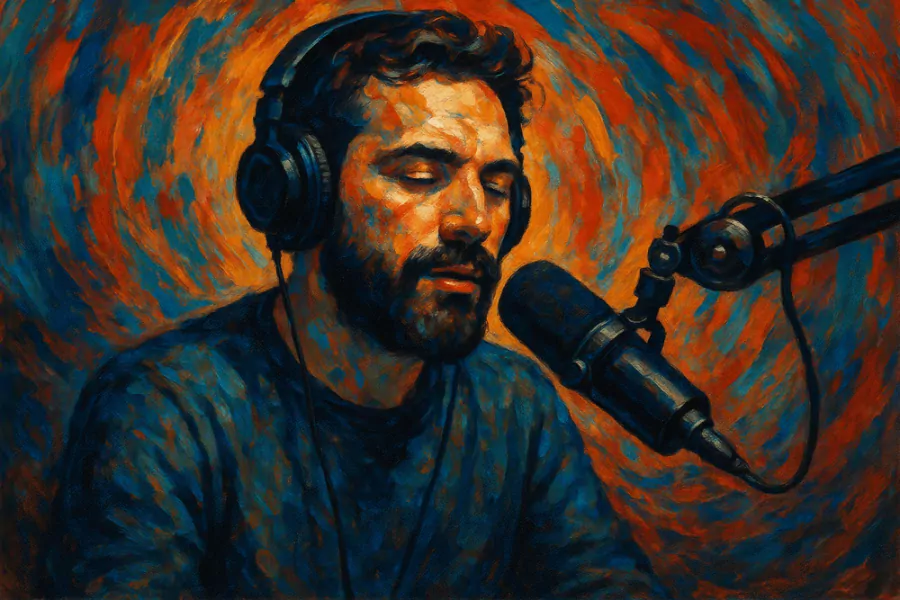The Evolution of Funny Memes: How Humor Has Changed Online
Explore how the rise of funny memes has reshaped online humor, benefiting content creators and social media enthusiasts.

The Evolution of Funny Memes: How Humor Has Changed Online
Introduction
In the vast expanse of the internet, few phenomena have captivated audiences quite like funny memes. These snippets of humor capture our collective consciousness, often providing a window into the cultural zeitgeist. From the early days of simple image macros to the complex meme formats we see today, the evolution of memes and meme culture is nothing short of fascinating. As humor adapts to the digital landscape, we witness shifts in how we communicate and entertain ourselves online. Whether you're a casual user or a meme aficionado, understanding the journey of these viral sensations can enhance your appreciation for internet humor. Join us as we explore the delightful world of memes and how they've transformed over the years.
The Origins of Internet Memes
The concept of memes can be traced back to Richard Dawkins' 1976 book "The Selfish Gene," where he introduced the term to describe ideas that spread and evolve. However, the true birth of internet memes began in the early 2000s. Platforms like 4chan and early social media sites became breeding grounds for meme humor, allowing users to share and remix content rapidly. From "Bad Luck Brian" to "Success Kid," these early viral memes set the stage for a meme culture that thrives on relatability and humor.
One notable example is the "Doge" meme, featuring a Shiba Inu with multicolored Comic Sans text capturing its inner thoughts. This meme not only became a cultural icon but also birthed a cryptocurrency, Dogecoin, highlighting how memes can transcend entertainment and influence economic trends. Such cases illustrate how humor can be a powerful vehicle for cultural commentary and even social change.
As internet memes gained traction, they began to evolve, reflecting the shifts in societal norms and humor trends. The rise of social media platforms like Facebook, Instagram, and TikTok provided a fertile ground for these creations to flourish. The accessibility of meme creation tools and formats led to a democratization of humor, where anyone could become a meme creator and contribute to meme culture.
Memes as a Reflection of Cultural Trends
The evolution of memes is not just about humor; it's a reflection of the values and concerns of society at any given moment. As we witnessed significant global events, memes often emerged as a coping mechanism. For instance, during the COVID-19 pandemic, memes about lockdowns, social distancing, and toilet paper shortages became ubiquitous, allowing people to find humor in the absurdity of the situation.
Moreover, memes have also served as a platform for social commentary. Memes addressing issues like climate change, racial inequality, and political events have sparked conversations and mobilized communities. The "Distracted Boyfriend" meme, for instance, became a humorous yet poignant way to discuss shifting priorities and societal expectations.
In this sense, meme culture acts as a barometer of public sentiment, providing insights into what resonates with audiences. The ability for memes to encapsulate complex ideas in a simple format is a testament to the power of internet humor in shaping public discourse.
The Mechanics of Memes Going Viral
Understanding what makes a meme go viral is crucial for anyone looking to leverage meme culture in marketing or social outreach. Several factors contribute to a meme's virality, including relatability, shareability, and timing. Memes that tap into shared experiences or current events often see higher engagement, as people feel compelled to share content that resonates with their networks.
For businesses, incorporating funny memes into marketing can be a double-edged sword. On one hand, a well-timed meme can enhance brand visibility and engagement. On the other hand, brands must tread carefully to avoid appearing inauthentic or insensitive. A successful example is Wendy's infamous Twitter roast sessions, where they embraced meme humor to connect with a younger audience, resulting in increased brand loyalty and sales.
Additionally, the use of user-generated content in meme marketing can foster community engagement. Encouraging fans to create and share their own memes related to a brand can create a sense of belonging and loyalty. This participatory approach not only amplifies reach but also allows brands to tap into the creativity of their audience.
Future Trends in Meme Culture
As we look ahead, the future of memes and meme culture seems poised for further evolution. With the rise of AI-generated content and deepfake technology, we may see new forms of humor emerging. While these advancements offer exciting possibilities, they also raise ethical questions about authenticity and representation in meme culture.
Moreover, as platforms continue to evolve, so will the formats and styles of memes. Short-form video memes on TikTok are already redefining how humor is consumed and shared, suggesting a shift from static images to dynamic content. This trend may lead to more immersive and interactive meme experiences, further blurring the lines between entertainment and participation.
Ultimately, the evolution of funny memes will continue to mirror societal changes, providing a lens through which we can understand the world around us. As humor adapts, we must remain open to the creative possibilities that memes offer, both for personal expression and for marketing innovation.
FAQs
What defines a meme?
A meme is typically defined as a piece of media that spreads from person to person, often altered in some way to suit different contexts while maintaining its core message. Memes can be images, videos, or text and are designed to evoke humor or commentary on cultural phenomena. They thrive on relatability, enabling them to resonate with a vast audience. As such, memes often reflect current events, societal norms, or universal experiences, making them a dynamic form of communication in the digital age.
How do memes impact marketing strategies?
Memes can significantly impact marketing strategies by enhancing engagement and relatability with target audiences. When brands utilize memes effectively, they can harness the viral nature of this content to boost visibility and create a genuine connection with consumers. However, brands must approach meme marketing with care to avoid misinterpretation or backlash. Successful campaigns often involve a deep understanding of the audience's cultural references and humor preferences, ensuring that the meme aligns with the brand's identity and messaging.
Can memes be used for social change?
Absolutely! Memes have proven to be powerful tools for social change, as they can quickly spread awareness about important issues and mobilize communities. By distilling complex topics into relatable and humorous formats, memes can engage audiences who might otherwise be indifferent. For example, memes addressing climate change or social justice have gained traction, encouraging discussions and prompting action among viewers. This viral potential makes memes a unique vehicle for advocacy and raising awareness about pressing societal issues.
What are some popular memes today?
The landscape of popular memes is constantly changing, but some current favorites include the "Bernie Sanders Mittens" meme, which humorously captured the fashion statement of the 2021 inauguration, and the "Woman Yelling at a Cat" meme, which continues to evolve through various contexts. These memes not only entertain but also provide commentary on contemporary culture. Staying updated with meme trends often involves engaging with platforms like Reddit, Instagram, and TikTok, where new formats emerge rapidly.
How can I create my own memes?
Creating your own memes is easier than ever, thanks to numerous meme generators and editing tools available online. Start by identifying a relatable idea or cultural reference, then choose an image or video that captures the essence of your message. Add text that enhances the humor or commentary, keeping it concise and engaging. Experimenting with different formats and styles will help you refine your meme-making skills. Also, sharing your memes on social media platforms can help gauge audience reactions and improve future creations.
Conclusion
The evolution of funny memes showcases the dynamic interplay between humor and culture in the digital age. As we navigate the ever-changing landscape of memes and meme culture, it's clear that these creations are more than just fleeting trends; they are reflections of our society's values, concerns, and creativity. Whether you're looking to leverage memes for marketing or simply appreciate their humor, understanding their evolution can enhance your experience. So, dive into the world of internet memes and discover the joy they bring - and if you're in need of expert guidance on tax and business services, reach out to Premier Tax and Business Services at 314-669-7300 or visit www.premiertbs.com for more information!

